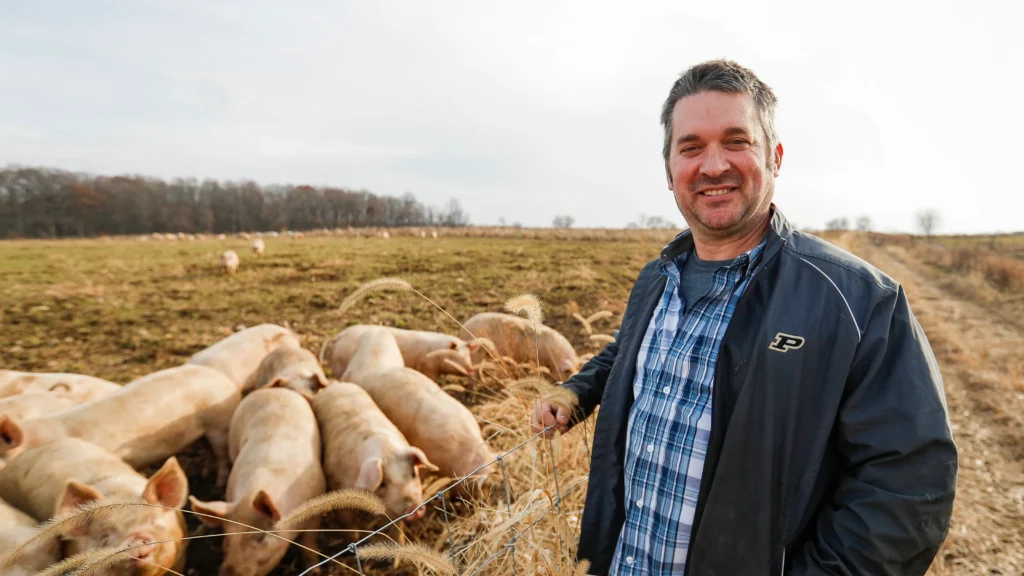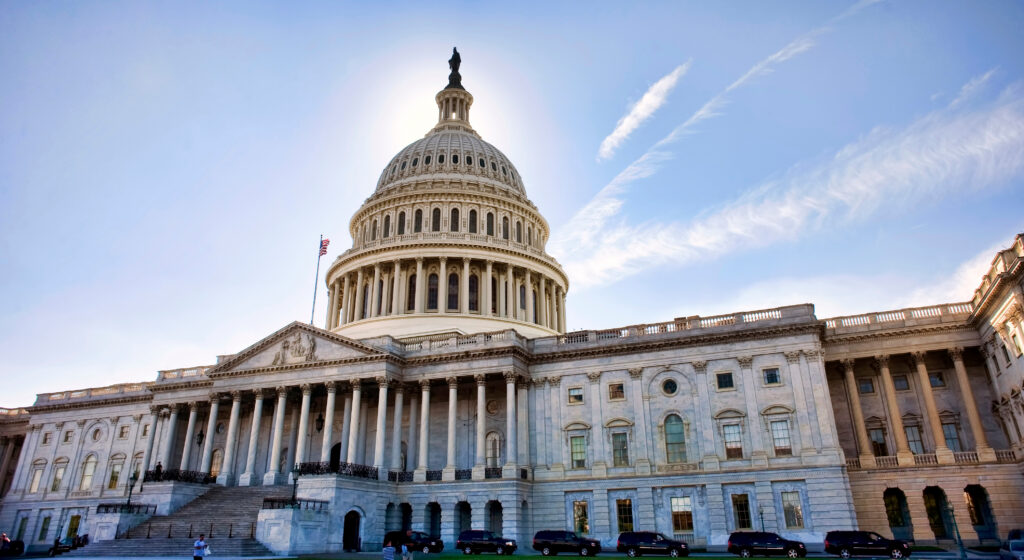There’s been a flurry of headlines since presidential candidate Kamala Harris announced that, if elected, she plans to take on major corporations to lower the price of groceries. With a proposed price gouging ban, Harris’s agenda targets the largest, most powerful billion-dollar companies that have been caught using supply chain disruptions to inflate costs for American consumers in recent years.
Her plan is already rattling the corporations that control our food system. Misinformation regarding how she intends to curtail grocery costs is circulating in the news and on social media — with some making claims about price controls. However, based on the details released, Harris’s plan lacks any mention of utilizing price controls and functions similar to state price gouging laws already in place.
Addressing corporate greed is critical to repairing our consolidated food system, and as a nonpartisan organization at the forefront of this movement — we can explain why.
Biden Charted a Path for a Crackdown on Corporate Control
To see where Harris is heading, it’s worth noting how President Joe Biden shaped this path forward. Taking an approach not seen since the Roosevelt era, Biden has taken massive swings at monopolies, including filing a series of antitrust lawsuits against major companies. Though his work went largely unacknowledged or unknown, Biden’s antitrust actions have impacted multiple industries, including food and agriculture.
Biden’s momentous trustbusting work in the food and agriculture sector started with his July 2021 Executive Order on Competition aimed at breaking up monopolies, which led to the following:
- New merger guidelines: At the end of 2023, the Federal Trade Commission (FTC) and the Department of Justice (DOJ) issued new merger guidelines, which strengthened enforcement against mergers that would significantly impact competition or lead to a monopoly.
- “Product of U.S.A.” reform: This U.S. Department of Agriculture (USDA) rule mandated that the “Product of U.S.A.” label can only be used on products ‘derived from animals born, raised, slaughtered, and processed in the U.S.’
- Packers and Stockyards Act (P&S Act) rulemakings: The USDA is strengthening the P&S Act of 1921 with a series of rules to level the playing field for farmers and ranchers.
- Lawsuits against Agri Stats and Cargill-Continental: The DOJ brought litigation against two major companies in the food and agriculture system for their antitrust violations.
- Noncompetes banned: The FTC issued a rule prohibiting the abusive practice of including noncompete clauses in worker contracts, which prevented workers from freely switching jobs.
These actions by the Biden administration have charted a course toward loosening corporations’ stranglehold on our food system. Harris’s initial plans indicate she would largely build on Biden’s work and take it further in some cases.
How Harris Plans to Take on Corporate Greed
During her North Carolina campaign event on Friday, Harris presented the first look at her campaign’s economic policy. Her agenda includes policies like blocking unfair mergers and a first-ever federal ban on price gouging.
As Matt Stoller explains, Harris’s price gouging ban is currently open-ended and mentions nothing about price controls — though some have jumped to that conclusion. Harris’s proposed ban emulates a bill we helped Senator Elizabeth Warren craft earlier this year. The bill seeks to codify at the federal level a law that at least 37 states already have some variation of on the books.
Just this year, the FTC found that large corporations took advantage of supply chain disruptions at the onset of the COVID-19 pandemic to raise consumer prices and increase their profit margins. Corporations have made it increasingly difficult for Americans to feed their families during market disruptions, and Harris’s proposed ban seeks to stop that.
Harris’s campaign said she plans to ban price gouging in part by expanding the FTC’s reach, enabling them to impose “harsh penalties” on firms that break price gouging limits — similar to Warren’s bill and even some state laws.
Harris’s plans to tackle corporate consolidation — especially in the meat packing industry — also appear promising as Biden’s top economic adviser, Brian Deese, has been tapped for Harris’s campaign. Deese was one of the advisers responsible for drafting actions to address the high concentration in the meatpacking industry, arguing that it has led to inflated consumer costs. Harris echoed that argument on Friday, indicating that she intends to crack down on major meat companies for price gouging while continuing to level the playing field for small meat packers through a Biden-Harris financial investment initiative.
Additionally, on Sunday, the Democratic National Convention approved an agenda that includes two more Farm Action priorities. The agenda calls for the adoption of legislation that grants farmers the right to repair their own machinery, a right that dominant equipment manufacturers like John Deere have long restricted. The agenda also indicates that the party will seek to limit foreign ownership of U.S. farmland in an effort to protect our nation’s food supply and national security.
Harris has laid the initial groundwork for an economy that shifts power away from corporations and back into the hands of farmers and consumers — a fight we have been at for years.
We'll herd updates like these right into your inbox.
Get the biweekly Farm Action News Roundup!
Farm Action's Fight Against Price Gouging
Our work on Warren’s price-gouging bill is just one action we have taken to curb corporate greed in the food and agriculture sectors.
In 2021, we called on the DOJ to investigate fertilizer price hikes that suspiciously occurred when farmers should have realized increased profits from higher commodity prices. In June 2022, we were joined by 23 organizations in calling for the USDA to establish a more competitive fertilizer industry by directing investments away from consolidated corporations, monitoring price-gouging, and more aggressively preventing corporate mergers.
In 2023, when egg prices soared, and corporations like Cal-Maine blamed inflation and avian flu, we examined their record-high profit margins and called on the USDA, DOJ, and FTC to investigate and brought nationwide attention to the issue when we found their excuses didn’t add up.
In May 2024, Farm Action’s Joe Maxwell testified before a Senate committee, demonstrating the impact that price gouging has on both consumers and farmers.
“Due to today’s heavily concentrated and vertically integrated food and agriculture supply chains, dominant firms no longer need to compete with each other in order to be profitable,” Maxwell said in his testimony. “Their market power leaves farmers and consumers vulnerable to market abuses: These companies use opportunistic market behavior to set the price they pay farmers and the price they charge consumers with little regard for market dynamics.”
How Harris Can Go Further to Support Farmers
Farm Action applauds Harris’s plans while urging the presidential candidate to consider further policies to support farmers and ranchers. Farm Action’s political arm, Farm Action Fund, published a guide for candidates to fight monopoly power and build fair, competitive markets.
To do this, we encourage Harris to adopt the following policies aimed at leveling the playing field and rebuilding America’s food system:
- Continue the Biden administration’s work of strengthening the P&S Act to protect farmers and ranchers from unfair practices by large corporations.
- Reform the USDA’s checkoff programs to restore them to their original purpose: a collective tool for product research and promotion. Prevent the USDA from awarding these farmer-funded tax dollars to industry lobbying organizations.
- Enforce truth in labeling to stop corporations from greenwashing their products and exploiting markets developed by independent farmers.
- Improve farmers’ access to risk management tools, credit, and land.
- Invest in smaller meatpacking plants to provide farmers and ranchers additional options for where to take their animals for slaughter.
- Implement values-aligned government food purchasing by prioritizing local and regional producers.
- Stop foreign, corporate, and billionaire investors from snapping up farmland and increasing land prices.
- Push Congress to enact legislation that grants farmers the right to repair their own machinery, a right that dominant equipment manufacturers like John Deere have restricted.
The next president must continue the work of the Biden administration in challenging corporate consolidation and leveling the playing field for America’s farmers. This is the only path to building a fair and competitive food system that stops corporate price gouging and protects national and food security.
This is the first blog post in our 2024 election series, which will next feature an analysis of former President Donald Trump’s record and plans for agriculture. Regardless of which candidate wins this November, Farm Action will hold the incoming administration accountable for improving America’s food system so that it works for everyone, not just a handful of corporations.
Farm Action is a nonpartisan organization, and our analyses are based on elected officials’ adherence to the principles of our mission: to stop corporate monopolies, hold government accountable, and build fair competition in rural America.
Written and edited by: Emma Nicolas, Jessica Cusworth, and Christian Lovell. Concept developed by Angela Huffman and Joe Maxwell.




